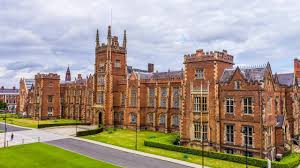Doctor of Philosophy [Ph.D] (Agriculture)
Field of Study:
₹43.8 L/Yr
Tuition Fees
| Year | 1st Year Fees |
|---|---|
| Tuition Fees | ₹4383250 (GBP 39400) |
Previous Year Tuition Fees
| Year | 1st Year Fees |
|---|---|
| 2021 | ₹2703375 (GBP 24300) |
Important Dates
No Deadline is available, students to enroll atleast 2 month prior the course starting date.
We offer a number of different routes to a research degree qualification, including full-time and part-time supervised research projects. We attract postgraduates via non-traditional routes, including mature students and part-time postgraduates undertaking study as part of their continuing professional development. Off-campus (split) research is also offered, which enables you to conduct trials in conditions appropriate to your research programme.
Crop science
Genes and physiological traits, such as:
- resistance to crop pests and diseases
- molecular-assisted selection and breeding methods
- plant environment interactions and their relationships to stress biology
- physiological basis of crop yield and quality
- biotransformation of synthetic compounds and natural products in plants
- herbicide selectivity in cereals and competing weeds
Soil science
- soil ecology and the contribution of soil biodiversity to soil quality
- soil carbon and nitrogen dynamics
- interpretation of soil and landscape processes to improve understanding of recent and historical environmental change
- land degradation processes and their control
Ecological (organic) agriculture
- functional biodiversity for control of pest, disease and weed pressure
- long term factorial systems comparison experiments for in depth study of different aspects of conventional and organic farming systems
Agricultural water management
- irrigated agriculture
- interactions between land-use and hydrological response in a semi-arid environment
- soil hydrological processes affecting management of salinity in irrigated land
Eligibility & Entry Requirement
Academic Eligibility:
- A 2:1 honours degree, or international equivalent, in a relevant subject.
- Newcastle also usually expect a master’s degree, or international equivalent, at merit or above. In addition to academic qualifications, they also value relevant work experience.
Indian Eligibility:
-
Typically Newcastle recognizes 60% from section 1 universities, 62% from section 2 universities and 65% from section 3 universities as compared to a 2.1 and 58% from section 1 universities, 60% from section 2 universities and 63% from section 3 universities as compared to a 2.2.
-
This can be in any of the following qualifications:
- Bachelor Degree
- Bachelor Pass or General degree in Arts, Science or Commerce
- Bachelor Special or Honours degree
- Bachelor degree in professional subjects
Along with the minimum eligibility requirements, tests required to study in the UK, international students hailing from non-English speaking countries need to prove English proficiency through IELTS/TOEFL/any equivalent test.
TOP Scholarships
| Scholarship name | Award amount | Eligibility |
|---|---|---|
| - | - | - |
| - | - | - |
| - | - | - |
Key Resources for Your Study Abroad Journey
Scholarship Grants & Financial Aids
| Name | Scholarship Per Student | Level of Study | Type | |
|---|---|---|---|---|
| Monica Cole Research Grant | Scholarship per student₹ 1.4 L/Yr$1,291 | Level Of StudyApprenticeship | TypeMerit-Based | |
| JN Tata Endowment Scholarship | Scholarship per studentVariable Amount | Level Of StudyDoctorate | TypeMerit-Based | |
| Commonwealth Professional Fellowship | Scholarship per studentVariable Amount | Level Of StudyDoctorate | TypeMerit-Based | |
| Commonwealth Scholarship | Scholarship per studentVariable Amount | Level Of StudyDoctorate | TypeMerit-Based | |
| Robert S. McNamara Fellowship Program | Scholarship per student₹ 27.8 L/Yr$25,000 | Level Of StudyDoctorate | TypeMerit-Based | |
| Forktip Women’s- Innovation Scholarship | Scholarship per studentVariable Amount | Level Of StudyBachelor | TypeCollege-Specific |
Similar Colleges

Robert Gordon University

University of Aberdeen

Aberystwyth University

University of Bath

Cranfield University

Queen's University Belfast

Ulster University

University of Reading











Comments